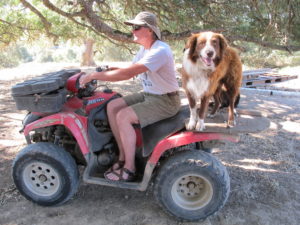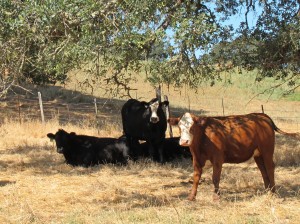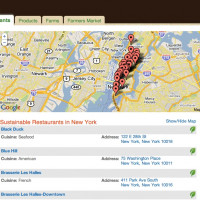[Editors Note: This is the fifth story in a series about meat distribution. Food + Tech Connect has run these stories every Monday for the past few weeks.]
If Mac Magruder had his way, he would be able to control the grazing of his grass-fed herd by GPS. And while the technology for such a virtual fence is on the drawing board, Magruder might have to wait a while to use it on his own cattle.
Magruder is one of the pioneers of “grass-fed” beef, chosen by Alice Waters and Chez Panisse to be the first pasture raised and finished meat served at the restaurant in 1996. And while he loves raising his cows on open pasture, he hates moving fences every few days to do it.
One of the main principals of raising purely grass-feed beef is pasture management. Ranchers like Magruder keep cows in small pastures and rotate them often from field to field to protect the land from being over grazed, eroded, and, well, over-pooped.
But that takes a lot of electric fencing to keep cows at bay, and is a time-consuming, labor intensive hassle. Fences also restrict the movement of other animals living in the area, like the deer who often get caught in live electric fences, typically destroying the fencing and shocking themselves unnecessarily. And fences are likewise unsightly and costly, making them undesirable in places like regional parks where cows and people live side by side, but could be used to preserve trails, creeks, and wetlands.
Magruder is not the first rancher to dream of virtual fencing for cows, but there is still no commercial product for sale quite yet. A team of Australian researchers is currently working on the idea, but found powering the collars to be their the biggest challenge. Kinetic and solar devices are being tried.
Additionally, Europeans are interested in using GPS collars to track the “mobility, provenance, and state of beef cattle.” The idea is that GPS tracing of cattle would help create data on the origin and production of the beef, “as well as the environmental conditions of the territory where the cattle are based.” No longer could “pasture raised” or “natural” beef be called such without a tag to prove it.
In the meantime however Magruder will just have to move fences day after day.







